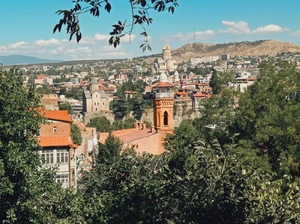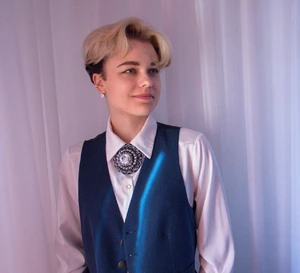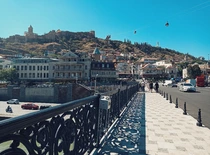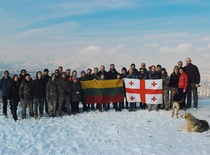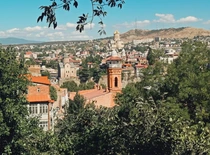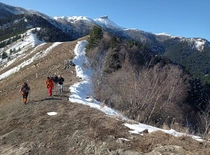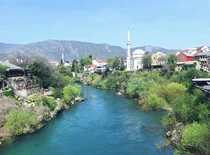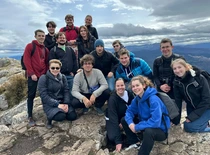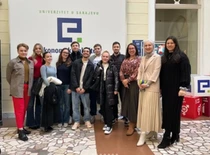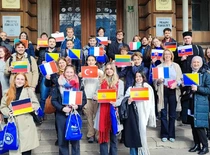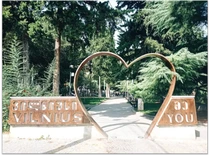“The people, the nature, the rhythm of life – it all moved with a certain vibrancy that swept me along,” she says.
Academically, Gintarė noted many similarities between KTU and the Georgian university, but what stood out was the emotional openness in classrooms and the deep warmth in student–professor relationships. “Professors and students alike bring more expression, more emotion, more openness to the classroom. There’s a sense of familiarity, a casual friendliness that feels different from what I was used to back home.” She also enrolled in Georgian language classes, which brought her closer to the culture and made her feel more empowered. According to her, it almost felt as if unlocking a superpower.
Traineeship in Bosnia and Herzegovina
Next came an Erasmus+ traineeship at the University of Sarajevo, where Gintarė joined the International Office of the School of Economics and Business. Her work included assisting with media communication and supporting exchange students, but, as she points out, it was far more than an administrative position. “It was about connecting with people, making them feel at home in a new country, and being part of the behind-the-scenes work that keeps international programmes running smoothly. Also, I got to see how a university operates on a global scale. That university plays a crucial role in implementing change and new ideas in society; it is supposed to be a driving force for societal progress,” she noted.
Studying abroad is more than a way to transform your résumé: “Students return with greater confidence, more tolerance, and a broader worldview. Many of them start to crave that diversity – it becomes a lifestyle.”
Sarajevo itself made a strong impression on her. Amid challenges, such as air pollution and EU integration, the city continued evolving, and Gintarė admired its drive toward transformation. The experience helped her reflect on how universities operate as global institutions and agents of change. “It made me step back and reflect – when I think about my little Lithuanian bubble, I realise there’s so much more out there. It’s clear that we’re all shaped by the environments we’re in, and that perspective has been eye-opening,” says Gintarė.
Supporting students at KTU
Now back at KTU, Gintarė plays a key role in internationalising education. She guides students through the Erasmus+ process, shares opportunities, and most importantly, encourages current students to consider international exchange. “Looking back, it seems that I was overthinking it all. The process is quite straightforward: applications are submitted twice a year, in September and February, through the Mobility Online system. And voilà, you’re fast on your way to studying abroad!”


